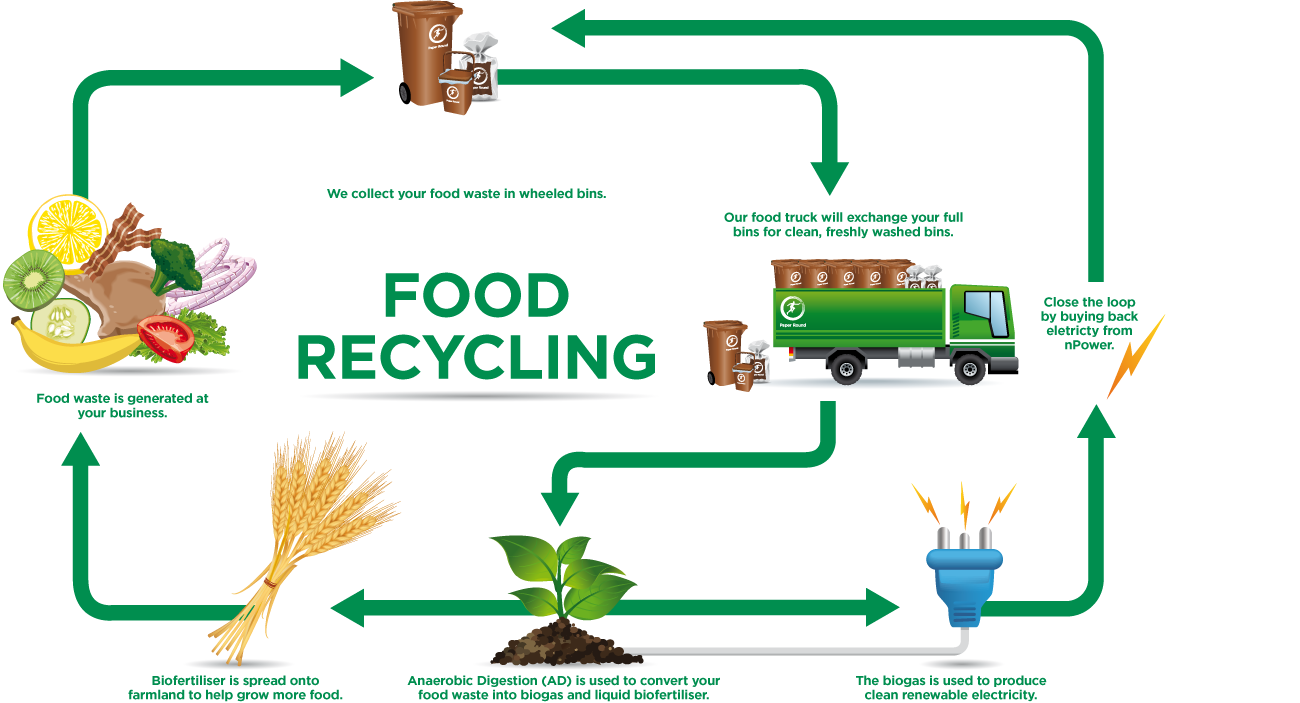As the world grapples with the challenges of climate change, environmental degradation, and sustainable development, the importance of reducing, reusing, and recycling waste has never been more pressing. One of the most significant contributors to waste management is food waste, which accounts for a substantial portion of municipal solid waste in landfills. Republic Services, a leading provider of environmental services, has taken a proactive approach to addressing this issue through its food waste recycling program.

The Problem of Food Waste
Food waste is a pervasive problem in the United States, with an estimated 30-40% of the food supply being discarded. This not only results in a significant loss of edible food but also contributes to greenhouse gas emissions, as food decomposes in landfills and produces methane, a potent greenhouse gas. Furthermore, the production, processing, and transportation of food that is ultimately wasted require significant amounts of energy, water, and land, exacerbating the environmental impact.
Republic Services’ Food Waste Recycling Program
Republic Services has developed a comprehensive food waste recycling program that aims to divert food waste from landfills and convert it into a valuable resource. The program involves collecting food waste from households, restaurants, and commercial establishments, and then processing it into nutrient-rich compost, energy, or animal feed.
The program is designed to be flexible and adaptable to meet the needs of different communities and businesses. Republic Services works closely with its customers to develop customized solutions that fit their specific requirements, whether it’s implementing a food waste collection program for a single household or a large commercial enterprise.
How the Program Works
The food waste recycling program involves several key steps:
- Collection: Republic Services collects food waste from households, restaurants, and commercial establishments using specially designed trucks and containers.
- Sorting: The collected food waste is sorted and processed to remove contaminants, such as plastics, metals, and glass.
- Grinding: The sorted food waste is then ground into a fine pulp, which is easier to process and transport.
- Composting: The ground food waste is then composted, either through aerobic or anaerobic digestion, to produce a nutrient-rich compost that can be used as fertilizer or soil amendment.
- Energy Generation: Alternatively, the ground food waste can be used to generate energy, either through anaerobic digestion, which produces biogas, or through combustion, which produces heat or electricity.
Benefits of Food Waste Recycling
The Republic Services food waste recycling program offers numerous benefits, including:
- Reduced Greenhouse Gas Emissions: By diverting food waste from landfills, the program helps reduce methane emissions and mitigate climate change.
- Conservation of Natural Resources: The program helps conserve water, energy, and land by reducing the need for new food production, processing, and transportation.
- Creation of Valuable Products: The program produces nutrient-rich compost, energy, or animal feed, which can be used to support sustainable agriculture, reduce waste, and promote economic development.
- Improved Soil Health: The compost produced through the program can help improve soil structure, increase crop yields, and support healthy microbial activity.
- Job Creation and Economic Benefits: The program creates new job opportunities in the waste management and recycling sectors, contributing to local economic development and growth.
Challenges and Opportunities
While the Republic Services food waste recycling program has achieved significant success, there are still challenges to be addressed, including:
- Contamination: Food waste can be contaminated with non-organic materials, such as plastics, metals, and glass, which can make processing and recycling more difficult.
- Infrastructure: The program requires specialized infrastructure, including collection trucks, sorting facilities, and composting or energy generation facilities.
- Public Awareness and Education: Raising public awareness and educating consumers about the importance of food waste recycling is crucial for the program’s success.
- Regulatory Framework: A supportive regulatory framework is essential for the program’s implementation and growth, including incentives for food waste recycling and composting.
Despite these challenges, the Republic Services food waste recycling program represents a significant opportunity for reducing waste, promoting sustainability, and supporting economic development. As the program continues to grow and expand, it is likely to have a positive impact on the environment, the economy, and local communities.
FAQ
Q: What types of food waste can be recycled?
A: Republic Services accepts a wide range of food waste, including fruits, vegetables, bread, grains, dairy products, and meat, as well as coffee grounds, tea bags, and eggshells.
Q: How do I participate in the food waste recycling program?
A: Contact Republic Services to learn more about the program and to schedule a collection service. You can also visit their website for more information and to sign up for the program.
Q: What are the benefits of food waste recycling?
A: Food waste recycling helps reduce greenhouse gas emissions, conserve natural resources, create valuable products, improve soil health, and promote economic development.
Q: How is food waste processed and recycled?
A: Food waste is collected, sorted, ground, and then composted or converted into energy through aerobic or anaerobic digestion.
Q: Is food waste recycling mandatory?
A: No, participation in the food waste recycling program is voluntary, but it is highly recommended to help reduce waste and promote sustainability.
Conclusion
The Republic Services food waste recycling program is a pioneering initiative that addresses the critical issue of food waste management in the United States. By diverting food waste from landfills and converting it into a valuable resource, the program helps reduce greenhouse gas emissions, conserve natural resources, and promote sustainable development. As the program continues to grow and expand, it is likely to have a positive impact on the environment, the economy, and local communities. By participating in the program and supporting food waste recycling, individuals and businesses can contribute to a more sustainable future and help mitigate the challenges of climate change, environmental degradation, and waste management.
Closure
Thus, we hope this article has provided valuable insights into Republic Services Food Waste Recycling: Turning Waste into a Valuable Resource. We appreciate your attention to our article. See you in our next article!